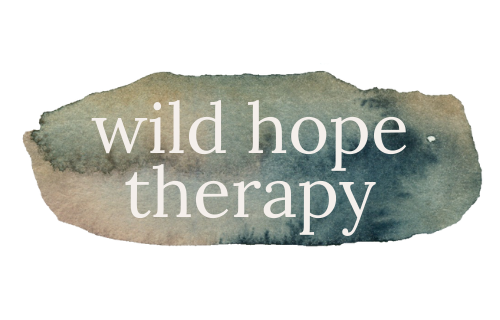setting healthy resolutions amidst diet culture
by: Ashleigh Roosz, LISW-S
The New Year often brings with it a variety of feelings such as hope, anxiety and the desire for change. For many people, this takes the form of a goal to lose weight. The way we see our bodies and how we judge them can be influenced or exacerbated by cultural pressure around ideal body types and beauty standards. And we are surrounded by it from social media, movies and tv, magazines, and even health providers. There’s actually a term for this widespread messaging and the assorted lifestyle choices, products, and plans that go along with it: “diet culture.” Diet culture capitalizes on people’s insecurities by promoting everything from gym memberships, weight loss supplements, cosmetic surgery, and of course, fad diets, especially through the New Year period. Even when dressed up in positive sounding, wellness-related language, any parameters set around ones eating suggest that food and eating have a moral value, resulting in shame and lowered self-esteem.
According to NPR, an estimated 45 million Americans go on a diet each year, and Americans spend roughly $33 billion on weight loss products annually. Further, most diets fail or result in temporary weight loss at best. Not to mention that resolutions surrounding weight loss, and dieting in general, can be triggering for those in recovery of an eating disorder.
The cycle of dieting contributes to feelings of failure, disappointment, guilt, and hopelessness–and therefore may increase symptoms of anxiety and depression. One way to develop more adaptive thoughts and feelings about our body is to practice body acceptance. Unlike body positivity, body acceptance doesn’t mean you have to force yourself to have enthusiasm for every part of your body right away. Instead, it encourages you to refocus on the many things your body does for you and all needs of its needs–including enjoying things like food and rest.
Similarly, intuitive eating promotes listening to and respecting your body when it comes to food, hunger, and movement. It also suggests that part of our difficult relationship with food often relates more to other unmet needs, unacknowledged feelings and difficult emotions, and emphasizes developing other coping mechanisms and sources of comfort. Intuitive eating does not mean adopting unhealthy eating patterns, but offers the concept of gentle nutrition–that food is to be enjoyed, and that we do not need to eat perfectly to be healthy. This allows for the enjoyment of food, and reinforces the idea that what we eat is morally neutral.
If you find yourself still getting drawn into the whirlpool of “diet culture,” here are some ways to redirect yourself.
If you’re thinking of starting a new diet, ask yourself “why?” Check to see if the answer is in line with your personal values and your other goals for yourself.
Set boundaries with yourself and others around your engagement with diet culture. You can change conversations away from weight loss and diet; unfollow social media accounts focused on diets; avoid body checking (progress pics, weighing, etc.)
Avoid using exercise as punishment. Reframe exercise as movement, and possibly find new things that feel good in your body (a dance class, walking, simple stretches, etc.)
Turn to your social supports when you’re struggling, and surround yourself with those who uphold the same values
Identify other comforts or coping skills for difficult moments. Therapy can help with this!
This year, consider an anti-diet culture mentality. Make space for the goals that are more aligned with your personal values and support your unique definition of health.
